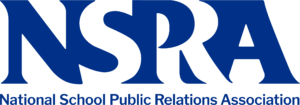Career Development
Are you a rookie in school PR or a veteran of many years? Do you seek Accreditation in Public Relations or do you need to find out the latest issues affecting our public schools? Maybe your school district is starting an education foundation? Perhaps your district has a bond election on the horizon? Whatever your PR needs may be, TSPRA can provide the training you need to become an effective, poised communicator. You can earn credit for the training you receive. TSPRA will also help you get ready to take that big accreditation step.
So, sign up for the next workshop. Attend the annual conference. Study for the APR exam through TSPRA. Register for education foundation certification training. Hold the next crisis communications training in your district.
TSPRA is here to help!
Accreditation in Public Relations
Experienced. Educated. Ethical.
The Accreditation in Public Relations (APR):
- Asserts professional competence
- Communicates professional expertise, plus personal and professional dedication and values
- Reflects progressive public relations industry practices and high standards
Accreditation is a voluntary certification program for public relations professionals, administered by the Universal Accreditation Board and the Public Relations Society of America. To become Accredited, members must advance from a Panel Presentation and pass a computer-based exam.
Earning the APR demonstrates your mastery of today’s strategic communications practice and your commitment to lifelong learning and ethical standards. Attaining this valuable distinction is a personal and professional achievement that can lead you to the next level in your career.
It is recommended that candidates have at least five years’ experience in the full-time practice or teaching of public relations and who have earned either a bachelor’s degree in a communication-specific field (e.g., public relations, journalism, mass communication) or have equivalent work experience, which includes public relations principles, public relations writing, public relations campaigns, research, ethics and law and internship (practical experience under supervision).
NOTE: All candidates must be a member of one of the nine participating organization that sponsors the APR (e.g., NSPRA, PRSA) and maintain membership moving forward.
PATHWAY TO ACCREDITATION
It is important to review all of the resources available before pursuing APR.
Contact the APR Chair – EMAIL (rvillarreal@nbisd.org)
Request a mentor
Create a timeline
Study and review resources
KSAs/Competencies tested in the APR examination
APR Online Study Course– *Contact APR Chair (rvillarreal@nbisd.org) for a group discount
Prepare for the Panel Presentation (Recommended)
Begin Candidate Questionnaire & APR Project Portfolio – To be presented during your Panel Presentation
Work with your mentor
Apply and Pay Registration/Testing Fee
Must be a member & remain a member of a participating organization (e.g., NSPRA,PRSA)
Application– Once your application is approved, you have one year to complete and pass the exam. You can apply for a 6-month extension only once.
Schedule/Participate in Panel Presentation – Must be requested through APR Chair
Finalize Candidate Questionnaire & submit to APR Chair before Panel
Finalize and Present Project Portfolio
Repeat step #5 if Panel Evaluators do not recommend you to advance
Study
Attend Workshops or Seminars
Participate in study group(s)
Schedule & Take the computer-based examination
Repeat step #6 & #7 if you do not pass the exam
Participate in Pinning Ceremony – To be held during the Annual TSPRA Conference
Demonstrate a commitment to lifelong learning through maintenance.
For more information, visit www.praccreditation.org.
For NSPRA members pursuing their APR, visit https://www.nspra.org/sites/default/files/earning_your_apr.pdf.
APR Training is offered as a pre-conference session at TSPRA’s Annual Conference.
Join us at TCU for the Certified Public Communicator® Program
The Certified Public Communicator® Program at TCU is a post-baccalaureate, graduate-level residential program for two summers (one week each in summer 1 and summer 2), plus a two-day winter session with strategic communication professors from TCU’s Department of Strategic Communication.
The Certified Public Communicator® Program at TCU offers leadership training and rigorous post-baccalaureate education for public information managers and communication professionals working for cities, counties, school districts, and other public and public-private agencies and organizations. With the Texas Association of Municipal Information Officers as a partner, the program encompasses the complexities, challenges, and importance of public communication to citizens and stakeholders.
What You’ll Learn
The Certified Public Communicator® Program builds successful and ethical leaders through experiential learning, strategic communication plan-building, theoretical instruction, case studies, and other interactive instruction led by strategic communication faculty members from TCU, as well as proven and engaging leaders from the public-service sector.
Students graduate from the program with three-year communication plans and policies for their organizations, which are put into action during the year with time for testing and revisions before graduation. In addition, students work with their professional cohort of colleagues, attend keynote presentations with other communication professionals, and engage in a year-long process of professional growth and goal-setting. Organizations that send their managers and communicators to the program receive tested communication plans including social media policies, research-based strategies and tactics, crisis communication plans, and more.
National School Public Relations Association

NSPRA has useful communications products, resource and research files, and has contacts and resources within the corporate communication industry. The association has chapters throughout the country that provide local networking opportunities for members. In keeping with their mission, NSPRA provides workshop assistance to school districts, state departments of education, regional service agencies, and state and national associations. For many of these groups, they have completed research-based communication audits to analyze the communication flow, targeting, content, and effectiveness of their communication messages.
Some of their products include:
- Making Parent Communication Effective and easy
- How to Market Your School
- Practical PR for Principals
Consulting Services – cost-effective resource for districts that need public relations expertise in areas such as bond elections, crisis communications, media training for administrators, communications audits, how to develop an effective public relations programs and other areas of school communications. For more information on fees and contracts, call the TSPRA state office at 512-474-9107.








